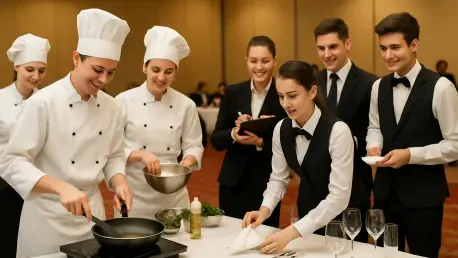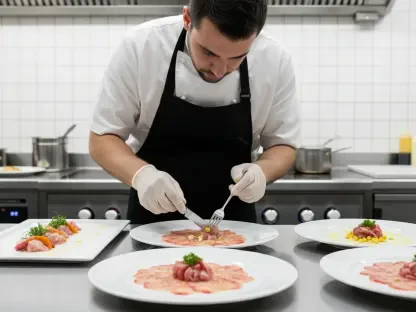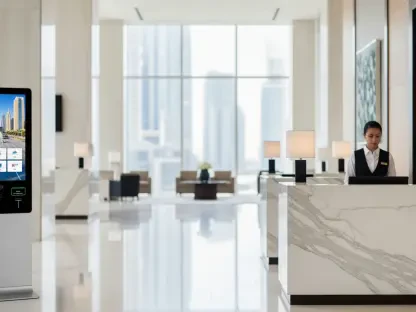What does it take to transform a classroom idea into a boardroom breakthrough in the high-stakes world of hospitality asset management? Picture a group of students dissecting complex financial data, crafting strategic recommendations, and presenting their vision to industry titans. This is the reality for participants in the Hospitality Asset Managers Association (HAMA) Student Case Competition, now in full swing for 2025. This annual event isn’t just a contest—it’s a proving ground for the next generation of leaders in an industry craving innovation and grit.
Why This Competition Is a Must for Hospitality Hopefuls
The significance of HAMA’s competition lies in its power to bridge the gap between academic theory and real-world application. For students at over 60 undergraduate and graduate programs nationwide, this event offers a rare chance to tackle challenges mirroring those faced by seasoned asset managers. It’s not about hypothetical scenarios; it’s about solving problems that keep industry leaders up at night, like navigating a management company change with financial precision.
Beyond the academic exercise, the stakes are high and the rewards tangible. Winning teams in both undergraduate and graduate categories secure a $5,000 prize and an all-expenses-paid trip to HAMA’s spring conference in Washington, D.C., in 2026. This isn’t just a pat on the back—it’s a direct line to networking with executives who shape the hospitality landscape, offering a head start in a competitive job market.
Inside the Challenge: Tackling Real Industry Dilemmas
At the heart of the 2025 competition is a case study centered on a management company change—a scenario that demands sharp analytical skills and strategic foresight. Student teams must conduct a thorough financial assessment and deliver actionable recommendations, complete with an executive summary fit for a boardroom review. This setup reflects the daily pressures HAMA members face as they represent asset owners, making the experience as authentic as it gets.
What sets this challenge apart is the access to industry-standard tools. Through partnerships with HotStats and Lodging Analytics Research & Consulting, participants work with the same data and benchmarking resources used by professionals. This hands-on exposure ensures that students don’t just theorize—they learn to think and act like asset managers under real constraints.
A National Stage: Diverse Talent in the Spotlight
The competition draws from a wide pool of talent, with prestigious institutions like NYU, Boston University, Howard University, and the University of Denver among the participants. This national scope highlights the event’s reach and its ability to attract diverse perspectives from across the country. Schools are tasked with selecting their finalists by January 15, 2026, ensuring that only the sharpest minds advance in separate undergraduate and graduate tracks.
This diversity isn’t just geographic—it’s intellectual. The range of academic backgrounds and approaches fosters a melting pot of ideas, pushing students to think beyond conventional solutions. For industry observers, this mix signals a vibrant future for hospitality asset management, where innovation can come from any corner of the nation.
Industry Voices: Excitement for Fresh Perspectives
Feedback from the field underscores the competition’s impact. Adam Tegge, chair of HAMA’s education committee, recently shared, “The creativity and insight students bring each year never fail to impress. It’s proof that the future of this industry is bright.” His enthusiasm reflects a broader sentiment among HAMA members who see these young minds as vital to solving tomorrow’s challenges.
This perspective is echoed in the evolving design of the competition itself. Input from university professors has steered the case study toward practical, applicable issues, moving away from broad, abstract topics. Coupled with support from data providers like HotStats, HAMA’s commitment to relevance and resources positions the event as a true launchpad for professional growth.
Making the Most of the Opportunity: Tips for Success
For students stepping into this arena, preparation is key to standing out. A deep dive into the nuances of a management company change is essential—understand its ripple effects on asset performance and stakeholder decisions. Using tools from HotStats and Lodging Analytics, teams should focus on weaving data into a compelling narrative that speaks to a board’s priorities, not just presenting raw numbers.
Collaboration and communication are equally critical. Teams must balance analytical rigor with innovative thinking, ensuring their recommendations are both feasible and bold. Practicing the presentation to convey confidence and clarity can make the difference when judged by 20 HAMA education committee executives. Above all, participants should embrace the experience as a learning journey, soaking in feedback and connections that can shape their early careers.
Reflecting on Impact: A Stepping Stone for Hospitality’s Future
Looking back, the 2025 HAMA Student Case Competition carved out a unique space for aspiring hospitality leaders to shine. It provided a platform where raw talent met real-world challenges, equipping students with skills and exposure that classrooms alone couldn’t offer. The partnerships with industry data providers and the focus on practical scenarios underscored a dedication to relevance that resonated with both participants and observers.
As the industry continues to evolve, the next steps for students and educators alike involve leveraging these experiences to push boundaries further. Exploring additional real-world case topics from 2025 to 2027, fostering even tighter industry-academia ties, and expanding access to cutting-edge tools could amplify the competition’s impact. For those who took part, the journey marked a pivotal moment—now it’s about carrying that momentum forward into careers that redefine hospitality asset management.









